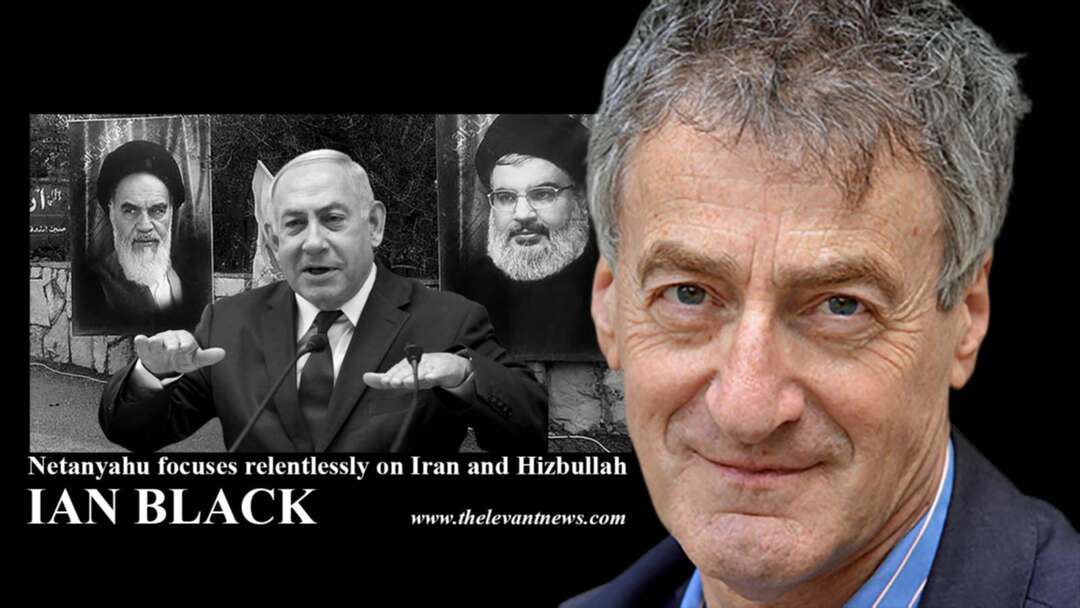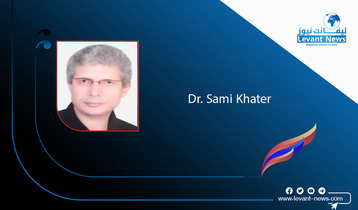-
Netanyahu focuses relentlessly on Iran and Hizbullah

IAN BLACK
On September 25 the Israeli prime minister Binyamin Netanyahu, appealed to the public to support the creation of a new national unity coalition government under his leadership. The main reason, the Likud leader argued, was what he called the “existential” threat posed by Iran and its regional allies or proxies.
In the political turmoil following the country’s deadlocked election a week earlier Netanyahu’s instinct was to exploit Tehran’s hostility for his own purposes. Critics immediately denounced this as “fear-mongering” and “spin.” But the unavoidable fact is that the rising tensions between Israel and Iran are arguably the most important part of the geo-political landscape of today’s Middle East.
In recent years no-one has done more than Netanyahu to highlight the danger posed by Iran. He fiercely opposed Barack Obama’s policy in support of the 2015 nuclear agreement. He was influential in persuading Donald Trump to abandon it and then to follow the controversial policy of “maximum pressure” on Tehran - even if the unpredictable US president appears unwilling to extend that to military action.
Shared enmity towards Iran has also been the principal factor in promoting the quiet but increasingly visible security and trade ties between Israel, Saudi Arabia, the UAE and other Gulf states, despite the absence of formal diplomatic relations. Another factor is the erosion of Arab support for the bitterly divided Palestinians.
But Israel’s actions have moved far beyond the strategic messaging at which Netanyahu excels. It has struck Iranian targets in Syria 200 times in the last year alone. Exchanges of fire across the Israel-Lebanese border in early September – retaliation for an Israeli airstrike against Hizbullah targets in Syria and, highly unusually, in its stronghold in southern Beirut - were the only the second since the war of 2006.
The earlier exposure of Hizbullah tunnels dug under the border have also raised the profile of this largely covert confrontation both regionally and internationally. The risk of escalation into a wider conflict is alarming, though the Israelis appear anxious to avoid that. Following the latest incident they used deception measures and a display of minimal force to allow Hassan Nasrallah, Hizbullah’s leader, to boast of hitting back – even though there were no casualties on the Israeli side.
In the run-up to the elections in April and again in September Netanyahu took to insisting publicly that Israel will respond to Iranian threats from wherever they emanate. He hinted that Israel was responsible for carrying out an August 25 drone strike against an Iraqi Shia militia – the Hashd as-Shaabi – that is backed by the Iranians.
The former chief of staff, Gadi Eizenkot, generated headlines when he warned that ignoring Israel’s long-standing policy of not acknowledging attacks was undermining the country’s deterrent capabilities. He did not name Netanyahu but it was clear that Eizenkot was complaining about the prime minister’s behavior in seeking to distract attention from his continuing legal problems.
Israeli security officials repeatedly signal, however, they are worried by Tehran’s ongoing efforts to supply Hizbullah with the technology to produce guided missiles – known as the “precision project” - that can hit strategic military and especially vulnerable civilian infrastructure inside Israel.
The impressively accurate September 14 cruise missile and drone attack on Saudi Aramco’s facilities at Abqaiq led to calls for an urgent review of Israeli missile defences. Israeli sources had no doubt that the strike was managed and coordinated by Tehran and not, as claimed, by the Houthi rebels it supports in Yemen.
Israeli officials routinely bracket Iran and Hizbullah together with Hamas, which has controlled the Gaza Strip since 2006, even though the Palestinian movement is Sunni, not Shia. Many acknowledge however, that Gaza’s blockade and the misery it produces are nothing to do with Ayatollah Khamenei. Netanyahu’s opponents accuse him of deliberately ignoring the Palestinians by focusing on the threat from Iran.
“Iran is a malign influence in the Middle East,” said one senior officer. “Iran uses proxy agents based on loyalties and alliances that are usually on sectarian lines.” Israel’s main focus is the Quds Force of the Iranian Revolutionary Guard Corps, commanded by Qassim Suleimani.
Israeli experts also point to increased support by Tehran for Palestinian Islamic Jihad, which attracts attention by firing into Israel even when Hamas is pragmatically observing a ceasefire. It is important nevertheless to note out that Iran is not formally a party to the unresolved conflict between Israel and the Palestinians – though that may change in future. And Hizbullah, some argue, can no longer be defined as a “non-state actor” given its massive firepower and close ties to Tehran.
Netanyahu has many critics – at home and in the Arab world and far beyond. It is still unclear whether he will serve as his country’s next prime minister. But the rivalry between Israel and Iran looks certain to continue - and it has the potential to escalate dangerously across the Middle East.
ENDS
You May Also Like
Popular Posts
Caricature
BENEFIT Sponsors BuildHer...
- April 23, 2025
BENEFIT, the Kingdom’s innovator and leading company in Fintech and electronic financial transactions service, has sponsored the BuildHer CityHack 2025 Hackathon, a two-day event spearheaded by the College of Engineering and Technology at the Royal University for Women (RUW).
Aimed at secondary school students, the event brought together a distinguished group of academic professionals and technology experts to mentor and inspire young participants.
More than 100 high school students from across the Kingdom of Bahrain took part in the hackathon, which featured an intensive programme of training workshops and hands-on sessions. These activities were tailored to enhance participants’ critical thinking, collaborative problem-solving, and team-building capabilities, while also encouraging the development of practical and sustainable solutions to contemporary challenges using modern technological tools.
BENEFIT’s Chief Executive Mr. Abdulwahed AlJanahi, commented: “Our support for this educational hackathon reflects our long-term strategic vision to nurture the talents of emerging national youth and empower the next generation of accomplished female leaders in technology. By fostering creativity and innovation, we aim to contribute meaningfully to Bahrain’s comprehensive development goals and align with the aspirations outlined in the Kingdom’s Vision 2030—an ambition in which BENEFIT plays a central role.”
Professor Riyadh Yousif Hamzah, President of the Royal University for Women, commented: “This initiative reflects our commitment to advancing women in STEM fields. We're cultivating a generation of creative, solution-driven female leaders who will drive national development. Our partnership with BENEFIT exemplifies the powerful synergy between academia and private sector in supporting educational innovation.”
Hanan Abdulla Hasan, Senior Manager, PR & Communication at BENEFIT, said: “We are honoured to collaborate with RUW in supporting this remarkable technology-focused event. It highlights our commitment to social responsibility, and our ongoing efforts to enhance the digital and innovation capabilities of young Bahraini women and foster their ability to harness technological tools in the service of a smarter, more sustainable future.”
For his part, Dr. Humam ElAgha, Acting Dean of the College of Engineering and Technology at the University, said: “BuildHer CityHack 2025 embodies our hands-on approach to education. By tackling real-world problems through creative thinking and sustainable solutions, we're preparing women to thrive in the knowledge economy – a cornerstone of the University's vision.”
opinion
Report
ads
Newsletter
Subscribe to our mailing list to get the new updates!






















